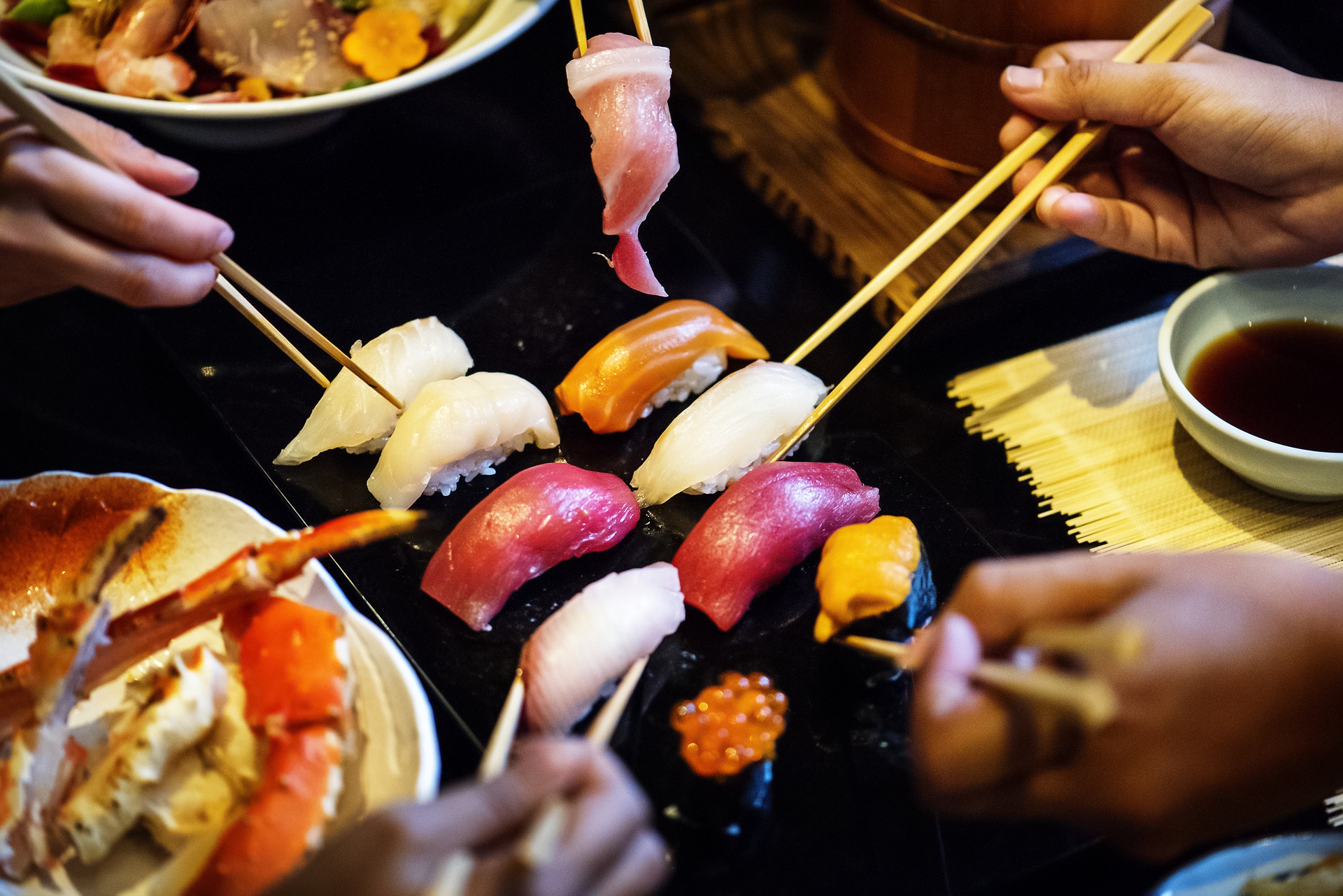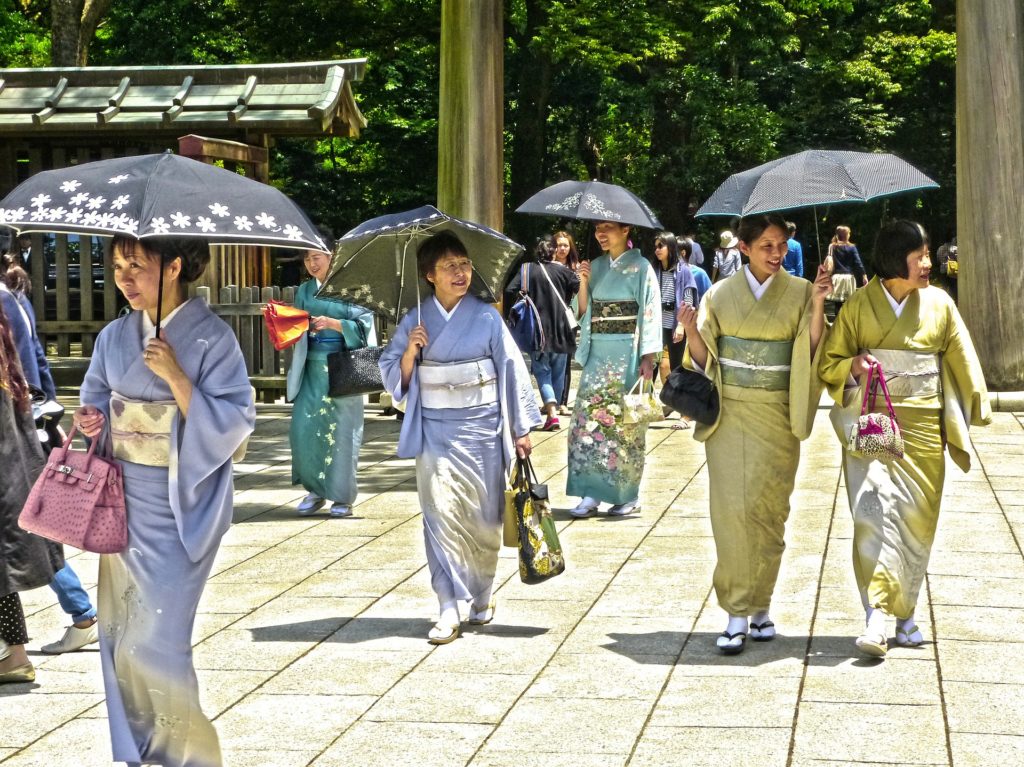When traveling in foreign countries, it’s important to know the culture and practices that aren’t common in your own country. For example, tipping in restaurants in the United States is customary; choosing not to tip is like insulting your waiter for their bad service. But in Japan, it’s the other way around: tipping is rude in Japan because people there do their job for the pride of it and not the money, and tipping is like saying you don’t think they’re making enough money, so you’re handing money out of pity.
Japanese cultural norms and their values may come as a shock to those who aren’t well-versed in the culture. So, whether you’re travelling to Japan for business or for pleasure, here are the norms, practices, and culture tips to take note of.
When Travelling

Give Up Your Seat to the Elderly, Pregnant, and Disabled
It’s customary for public transportation in Japan to have reserved seats for the elderly, disabled people, pregnant women, and those carrying small children. However, if those seats are full and no one else is standing up, make the initiative to give up your seat for those who need it more.
Don’t Eat While Travelling
Unless you’re in a festival, it’s considered bad manners to eat or drink while walking. Drinking and eating are not allowed on public transport due to cleanliness. If you buy food, either eat it on the store or keep it closed and don’t open it until you arrive home.
Use the Money Tray
In western culture, we have a habit of handing our money or credit cards directly to the cashier. In Japanese norms, however, they have money trays where you put the money and slide towards the cashier. Some cashiers may consider it rude to ignore the tray and be handed money.
Always Keep Cash in Hand
Most stores only accept cash, and the stores that do accept credit cards are expensive restaurants, hotels, and other superstores. To avoid any untoward incident where you find yourself short on cash, always make sure you have enough money on-hand.
Be Quiet When in Public Transportation
It’s rude to be unnecessarily noisy when traveling in public transportation in Japan. This means no playing music unless you’re wearing personal listening devices like earphones and headsets, putting your phone on silent mode, and, when you’re traveling with a companion, not speaking too loudly.
Also, Japanese people are often very reserved. You also can’t tell whether or not a Japanese person can speak in a language both of you can understand. So, unless it’s absolutely necessary, don’t try to make conversation with the person you’re sitting next to on the bus.
Always Practice Basic Hygiene
Japanese cultural norms take hygiene and cleanliness seriously. In fact, one of Japan’s beauty standards involves a healthy and clean look, so it helps to maintain an air of cleanliness while visiting Japan. While traveling, try to look neat and presentable. Do not blow your nose in public and sniff – if necessary, wear a face mask so that you can avoid spreading your disease.
When Dining Out

Never Rest Your Chopsticks on Your Bowl
When you want to put your chopsticks down, don’t tilt it on the side of your bowl, over your bowl, or letting it stand by poking at the rice (because it reminds Japanese people of a funeral ritual). Instead, use the chopstick rest often provided in restaurants. This can look like a wooden, metal, or porcelain rectangle or square that looks something like this.
If the restaurant or home doesn’t provide chopstick rests, use your chopsticks wrapper or put it on the side of the tray on the table. Just do not use your bowl as it is considered rude. Also, don’t stab our food with your chopsticks like you would a kebab. Don’t point at someone with your chopsticks.
In Case You Want to Tip, Use an Envelope
In case you find the services of a person to be very excellent and insist on providing a tip, you’ll want to have a few small decorated envelopes ready just in case. While some Japanese people will accept a tip so that they don’t offend you by refusing it (or, in some cases, they don’t adhere to the typical Japanese culture and willingly accept the cash), there are those who are very prideful and will take offense at being offered money you simply take out of your wallet. To them, it’s rude and as if you look down on their job.
If you want to provide a tip, don’t call it a “tip.” Instead, call it a “gift.” Put the money in a decorative envelope, seal it, and hand it to them with two hands and a slight bow.
Don’t Be Afraid to Slurp
While slurping your soup and noodles is considered rude in western table etiquette, slurping your noodles in Japan is a sign that you enjoy the meal. It’s a great way to cool down your noodles and supposedly enhances your noodles’ flavors. So, don’t be ashamed to slurp, as your host will be delighted as it shows that you like their food.
Never Pour Your Own Drink
When eating with others, it is considered rude and unhospitable to pour yourself a drink. You can pour drinks for the people you’re eating with, but you have to wait for someone to pour your drink for you. During larger gatherings, you do not drink until everyone has a glass. You can start drinking on your own pace after everyone raises their glasses with a collective “kampai,” which is the Japanese version of saying, “Cheers!”
Don’t Overload on Soy Sauce
It’s considered bad manners and wasteful to pour more soy sauce than what’s necessary on your soy sauce bowl (the small bowl usually provided in dining settings). When eating sushi, some sushi chefs will already apply the right amount of soy sauce, and it’s considered rude to add any more. If they don’t, dip the fish side of your sushi into the soy sauce bowl, and only dip a little bit. Drowning your sushi in soy sauce is like telling the chef that their sushi is so flavorless that it requires a lot of soy sauce.

